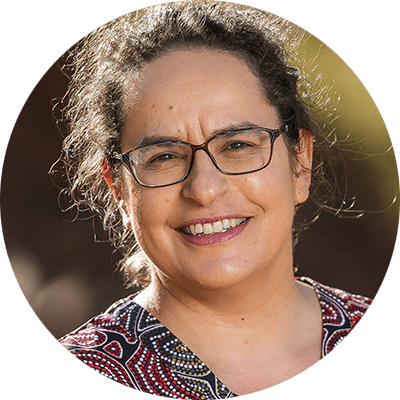Through examining the broad umbrella of health services and health systems research, Associate Professor Tamara Mackean is taking steps to de-colonise Australia’s health services – to make them more acceptable and therefore more effective to the health and wellbeing of Aboriginal and Torres Strait Islander people.
It’s a difficult process to unravel long histories of stubborn institutional adherence to existing biomedical paradigms, but Associate Professor Mackean – a Waljen woman, Fellow of the Australasian Faculty of Public Health Medicine and research leader for Flinders University Aboriginal and Torres Strait Islander Public Health Research Team – believes she is making significant progress.
“We have to get to the core idea of what a system is trying to achieve, and realise that it is not being successful in the ways it delivers appropriate health services to Indigenous people. It therefore needs to pursue a different path,” says Associate Professor Mackean.
“The existing health systems are being guided by prevailing views that we see driving the Closing the Gap federal policy framework, which data shows is failing to close the gap in health, education and employment inequities facing Aboriginal and Torres Strait Islander people – so we have to create a better framework for healthcare practice and models of care. We are driving a new program of research that will answer some of the shortcomings of the Closing the Gap policy.”
Strong indicators are helping to point the way forward, with an important landmark being the 2019 accreditation for standards of hospital care for Aboriginal and Torres Strait Islander people. “It’s a driver for change that opens up broader possibility for systems reform,” says Associate Professor Mackean. “Another significant advance is the Australian Health Practitioner Regulation Agency embarking on a cultural safety project that ensures health providers have cultural safety practices linked to their registration.”
Associate Professor Mackean believes such changes now need to be fused to increase Indigenous knowledge input into healthcare systems. “Having people in Canberra tell Indigenous communities what they need, without listening to the input of Indigenous leaders, has been such an entrenched part of the way Indigenous healthcare has been delivered that it has bred community distrust in the system. The wants of the people have become invisible – therefore, much of our work is to make their needs visible, and make sure they are acted upon.
“We have to make space for Indigenous evidence and Indigenous ways of working, so that it can’t be dismissed. This will see us move forward in a more respectful and integrated way.”
Associate Professor Mackean can already see growing respect throughout Australia for Indigenous knowledge of environmental understanding, planetary health and knowledge of Country, and she is hopeful this will now stretch further, so that Indigenous health and healing knowledge is respected and incorporated into new and revised ways to tackle Indigenous health and wellbeing.
Building trust among Indigenous communities is imperative for better engagement to result in improved health outcomes, but this means that researchers and policy-makers have to ask hard questions of what trust looks like to an Indigenous individual and at a collective level, for families and communities so that they listen, understand and accept what is being said to them about public health.
“Trust built through collaboration that has real meaning is only going to happen through dismantling the existing Indigenous health model and repacking services in a more functional and constructive way.” It’s an enormous task, but Associate Professor Mackean says the fundamental building blocks will be laid through recognising First Nations peoples’ knowledge and introducing this into best practice healthcare measures.
A crucial first link in building a stronger chain of trust is engaging more Indigenous health workers to interact with Indigenous communities – and this is where Flinders University plays a crucial role in educating an increasing number of future Indigenous healthcare professionals through its teaching and training programs based in South Australia and the Northern Territory.
“I have a very big vision for a better system, and that has been inspired by changes I’ve seen through the past decade in the cumulative impact of Indigenous health leadership,” says Professor Mackean, “but we can’t drive this alone. It’s an effort we must all undertake together, to provide benefits for everyone – and particularly for our nation moving forward.”
“Trust built through collaboration that has real meaning is only going to happen through dismantling the existing Indigenous health model.”
![]()
Sturt Rd, Bedford Park
South Australia 5042
South Australia | Northern Territory
Global | Online
CRICOS Provider: 00114A TEQSA Provider ID: PRV12097 TEQSA category: Australian University










